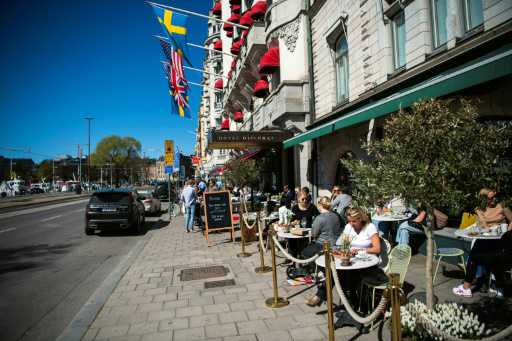Sweden cracks down on bars as crowds flout coronavirus rules
27 April, 2020

Sweden, whose softer method of combatting the brand new coronavirus has garnered international attention, said Sunday it had been ordering the closure of five Stockholm bars and restaurants that didn't respect social distancing guidelines.
The Scandinavian country has allowed schools for under-16s, cafes, bars, restaurants and businesses to stay open while urging persons and businesses to respect social distancing guidelines.
Restaurants and bars are just permitted to provide table service, with tables spaced one or two meters apart to avoid overcrowding.
While data suggests most Swedes are voluntarily practicing social distancing, photographs have made the rounds worldwide in recent weeks of Stockholmers bathing in the spring sunshine sitting at crammed restaurant terraces, or queuing closely together outside nightclubs.
Authorities had warned last week they would be upgrading inspections to ensure establishments were respecting social distancing guidelines, however, many bars and restaurants were again packed at the weekend.
Four of the five bars and restaurants are found in the trendy Sodermalm neighborhood, favored by young partygoers.
"The main problem was overcrowding, both within the premises and outdoors," Stockholm health official Per Follin told news agency TT.
He said their closure was immediate and until further notice.
Among other restrictions Sweden has imposed are bans on visits to retirement homes and on gatherings greater than 50 people.
It has additionally urged people to home based when possible, and recommended people older than 70 and in risk groups to limit contacts with others.
The Swedish approach has received criticism both domestically and internationally as its death toll has leapt higher than its Nordic neighbours, which have all instituted more restrictive containment measures.
By Sunday, Sweden, which has 10.3 million inhabitants, reported 2,194 COVID-19 deaths, compared to 422 in Denmark and 193 in Norway, whose populations are about 50 % the size.
Swedish officials have however insisted their plan is sustainable in the long-term, rejecting drastic short-term measures as too ineffective to justify their impact on society.
Source: japantoday.com
TAG(s):
